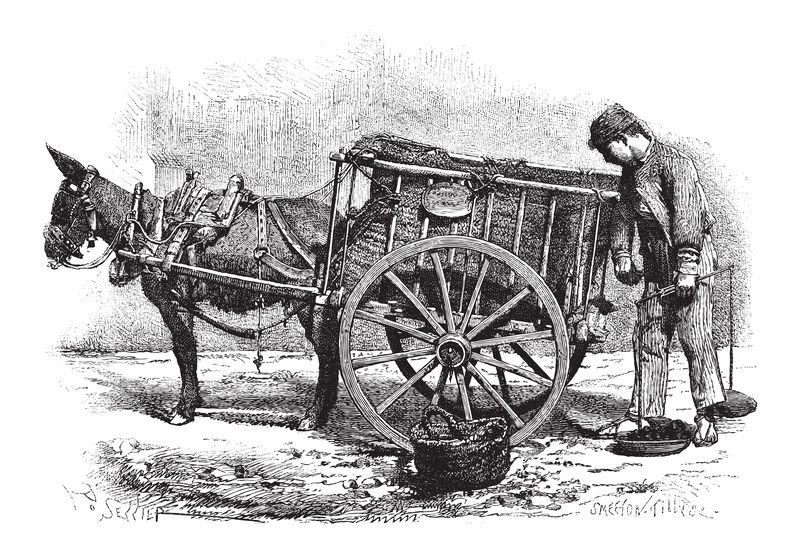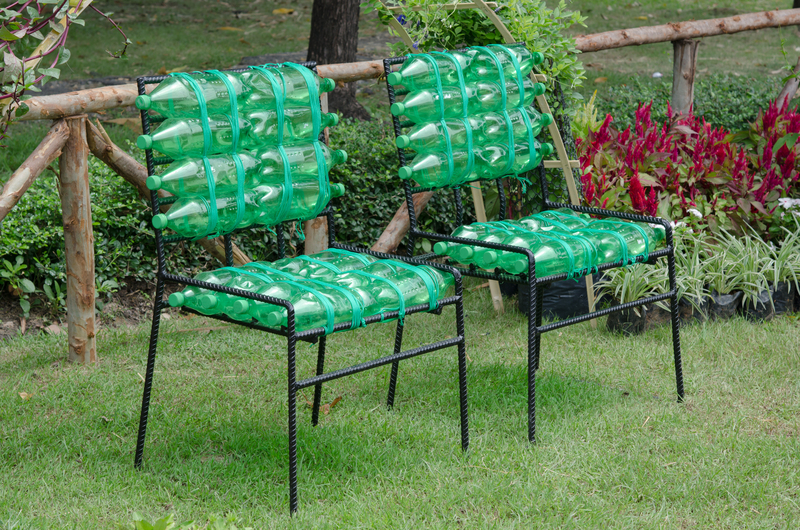Pocket-Smart Approaches for Managing Bulky Waste Items
Bulky waste items--such as old furniture, large appliances, mattresses, and construction debris--are a common challenge for households and businesses alike. Managing these items can be daunting, but with the right strategies, you can handle bulky waste efficiently, sustainably, and affordably. This in-depth guide explores pocket-smart approaches for managing bulky waste items, offering actionable tips, eco-friendly solutions, and valuable insights to help you declutter your space while protecting your wallet and the environment.
Understanding Bulky Waste: What Qualifies?
Bulky waste refers to items too large or heavy to fit into regular waste bins or be collected with your usual trash service. Common examples include:
- Sofas, Armchairs, and Couches
- Desks, Bookcases, and Wardrobes
- Mattresses and Box Springs
- Lawn Equipment
- Large Appliances (Refrigerators, Washing Machines, Ovens)
- Carpets and Rugs
- Televisions and Electronics
- Construction Waste (old doors, windows, bathroom fittings)
Managing these items responsibly is vital to avoid illegal dumping, environmental harm, and unnecessary disposal costs. Let's explore the smartest and most budget-friendly bulky waste management solutions available today.

Why Pocket-Smart Strategies for Bulky Waste Management Matter
Handling bulky waste carelessly can lead to expensive fines, community eyesores, and significant ecological impact. Pocket-smart approaches help you:
- Save Money by reducing disposal fees and maximizing the value of used items.
- Contribute to Sustainability by reusing, recycling, and repurposing big items.
- Keep Neighborhoods Clean and discourage illegal dumping in your community.
- Stay Compliant with local regulations and trash ordinances.
With costs for landfill disposal rising, innovative and economical solutions are more critical than ever. Read on for methods that are not only gentle on your wallet but proactive for the planet.
Pocket-Smart Approaches for Managing Bulky Waste Items
1. Plan Ahead: Inventory & Assessment
Begin the process by evaluating what you have. Make a list of all bulky waste items for disposal. Ask yourself:
- Is the item still usable or could it be donated?
- Can it be taken apart for easier handling?
- Does it contain hazardous materials (like old fridges with coolant)?
An organized approach prevents repeat duties and helps you pick the best disposal method for each item.
2. Donate or Sell Usable Items
One of the most cost-effective bulky waste management methods is finding a new home for items in good condition. Consider:
- Local Charities: Many will accept or even pick up gently used furniture and appliances.
- Online Marketplaces: List items on platforms like Craigslist, Facebook Marketplace, OfferUp, or Freecycle.
- Community Giveaways: Host a neighborhood swap event or share on local online forums.
Tip: Some organizations offer free pickups, helping you dispose of bulky waste at no cost.
3. Upcycle and Repurpose
Get creative with items that are tough to sell or donate. Upcycling transforms old goods into valuable, functional pieces--saving money and reducing waste. Popular upcycling ideas include:
- Turning wooden pallets into DIY furniture or garden planters
- Repurposing scrap metal for art or shelving
- Using old doors as headboards or memo boards
Upcycling promotes environmental consciousness and can save you cash compared to buying new.
4. Contact Local Bulky Waste Collection Services
Most municipalities offer special bulky waste collection days or on-demand pick-up services for large items at little or no charge. Here's how to make the most of them:
- Check your municipality's website for collection schedules and rules
- Book appointments early to secure a spot during busy periods
- Separate items by type to streamline collection and recycling
If your area doesn't provide this service, consider pooling resources with neighbors to hire a waste contractor jointly, splitting the costs.
5. Rent a Small Dumpster or Skip Bin for Shared Use
For major cleanouts or renovations, renting a mini dumpster or skip bin can be a pocket-smart solution. Lower costs by:
- Sharing the rental with neighbors or local groups
- Consolidating items for maximum space use
- Selecting the smallest possible size for your needs to avoid overpaying
Be sure to ask the provider about accepted materials and restricted items.
6. Recycle Where Possible
Large items often contain materials--like metal, wood, electronics, or plastics--that can be recycled. Many communities have dedicated drop-off centers or special recycling events for:
- Mattresses (springs and foam)
- Appliances (metals and refrigerant removal)
- Electronics (e-waste collection programs)
- Carpets and construction materials
Ask about fees before dropping off items, as these vary by location.
7. Use Haul-Away Services Only When Necessary
Commercial junk removal companies will collect and dispose of your bulky waste directly from your doorstep--convenient, but not always the cheapest. To use these services wisely:
- Compare quotes from multiple providers
- Group bulky items into one haul to minimize costs
- Remove non-bulky trash yourself to save space
Always ask about recycling or donation policies to maximize sustainability.
8. Consider Renting or Borrowing Vehicles
Have access to a van or pickup truck? If local regulations allow it, drop off bulky items at the landfill or recycling center yourself. Cut down fuel and rental expenses by:
- Cramming as many items as safely possible per load
- Teaming up with others for shared trips
- Using car-sharing services for larger vehicles
Some waste centers charge reduced rates for sorted, recyclable materials--ask before you go.
Eco-Friendly and Sustainable Bulky Waste Management
A truly pocket-smart bulky waste disposal plan considers environmental impact. Here's how to ensure your approach is as green as it is affordable:
- Research Extended Producer Responsibility: Many brands or retailers take back old furniture and electronics for recycling or safe disposal.
- Avoid Landfills Where Possible: Diverting items to donation, recycling, or repurposing lowers your carbon footprint.
- Educate Yourself: Learn your community's recycling guidelines to avoid contamination and fines.
- Participate in Bulk Recycling Drives: These events often occur seasonally and accept items not collected at curbside.
Some regions host repair cafes or fix-it clinics--community events where you can get help repairing or restoring large items. Keep valuable goods in use and out of the waste stream!
Cost-Effective Tips for Handling Specific Bulky Items
Appliances
- Contact local retailers: Some stores offer removal and recycling when delivering replacements.
- Many utilities and municipalities host annual appliance roundups with free drop-off.
- Verify if your item's parts are salvageable for scrap metal value.
Mattresses
- Check for regional mattress recycling initiatives or manufacturers' take-back programs.
- If donating, ensure the item is clean and pest-free--many charities won't accept otherwise.
- Break down unusable mattresses to separate metal, wood, and foam for recycling where facilities exist.
Furniture
- Upcycle with paint or new fabric to make old furniture like new (and resellable).
- Convert wood furniture into shelving, pet beds, or garden features.
- Use local online platforms for free curb alerts to increase the chance of reuse.
Construction Debris
- Rent a small skip with a group if there's enough waste to consolidate.
- Donate usable leftovers (bricks, tiles, lumber) to building material exchanges or Habitat for Humanity ReStores.
- Enquire about local recycling programs for drywall, concrete, and framing timber.
Community Solutions for Bulky Waste Management
Managing large-scale or repeated bulky waste can be overwhelming for individuals. Community-based solutions offer excellent value and efficiency, including:
- Neighborhood Clean-Up Days: Pool resources for group pickups or special curbside collections.
- Shared Dumpster Programs: Apartment complexes or HOA groups can coordinate bulk waste containers.
- Tool Libraries: Borrow dollies or lifting equipment to move heavy items safely, cutting rental expenses.
- Online Sharing Boards: Notify neighbors of available freebies to facilitate quick reuse or redistribution.
Community engagement fosters accountability, reduces illegal dumping, and often brings additional city support.
What to Avoid: Costly Mistakes in Bulky Waste Disposal
To keep your bulky waste management approach pocket-smart and legal, be aware of common pitfalls:
- Illegal Dumping: Leaving items on roadsides can result in hefty fines and cleanup fees.
- Ignoring Local Rules: Regulations on accepted items, disposal fees, and schedules vary by place--always check in advance.
- Mixing Hazardous Materials: Many bulky items contain restricted substances (lead, refrigerants). Improper disposal is dangerous and can attract penalties.
- Not Getting Quotes: Prices for junk removal and dumpster rentals vary--shop around for the best deal.
- Missing Opportunity to Recycle or Donate: Sending potentially reusable or recyclable materials to landfill is wasteful and unnecessary.

Frequently Asked Questions (FAQs)
Q1: What is the cheapest way to dispose of bulky waste items?
The most affordable options are donation, selling, or utilizing free municipal collection events. If unavailable, coordinate shared pickups or drop-offs to split costs.
Q2: Can any large item be recycled?
Not all bulky waste is accepted at recycling centers. Check your local guidelines--mattresses, electronics, and metals are most commonly recycled, while upholstered furniture and carpets may require special processing.
Q3: How can I avoid bulky waste disposal fines?
Adhere strictly to your local waste collection schedules and rules. Never leave items on public property without approval, and properly separate hazardous components from general waste.
Q4: What should I do with hazardous bulky waste?
Hazardous materials--like refrigerators, electronics, or treated wood--should go to certified disposal or recycling centers. Many communities host special collection events for safe removal.
Final Thoughts: Make Bulky Waste Management Easy and Affordable
Whether you're moving, renovating, or just decluttering, managing bulky waste responsibly doesn't have to be expensive or difficult. With pocket-smart strategies--such as planning ahead, exploring donation and recycling outlets, and utilizing community resources--you can lower costs while helping the planet.
Take time to research options, connect with neighbors, and tap into local programs. The result? A cleaner home, a greener community, and a lighter load on your wallet.
Embrace sustainable, pocket-friendly solutions for managing bulky waste items and set the standard for responsible disposal in your area today!